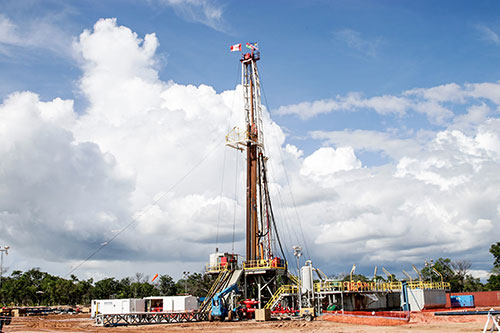The Canadian company exploring for black gold in the Kavango regions, Reconnaissance Energy Africa, last week announced it managed to raise just over US$7.4 million (about N$133 million) to continue its Namibian drilling campaign. Recon exceeded initial expectations as it aimed to raise US$6.5 million.
The company raised the funds through the Toronto Stock Exchange, with the offering sold outside of Canada on a private placement basis.
The funds were raised shortly after ReconAfrica recently received a ministerial environmental clearance certificate (ECC) to drill another 12 exploration wells. This latest ECC is valid from July this year to July 2026.
“Pursuant to the offering, a total of 6 795 454 units were sold at a price of US$1.10 per unit. Each unit consists of one common share in the capital of the company, and one common share purchase warrant of the company.
Each warrant entitles the holder to acquire one common share at a price of US$1.35 until 18 July 2025,” reads a RecondAfrica statement.
The oil miner stated that the net proceeds from the raised funds will be used for site preparation of a future drilling location, wellsite and rig maintenance, in addition to other geologic and subsurface projects, geophysical processing and working capital.
ReconAfrica recently quashed unsubstantiated rumours surrounding its exploration activities as locals were speculating that drilling ended unsuccessfully and that the company is packing up local operations, given the absence of foreign workers at drilling sites.
However, ReconAfrica recently shared with New Era that it is still interpreting available data obtained from completed exploratory drilling in order to determine where to drill next. In fact, the company’s field operational activities are scheduled to recommence once it starts with its next drilling campaign.
“Once the data has been processed and integrated with well data, it is interpreted to understand an integrated image of the geology that will assist with directing the rest of the project, including building a prospect portfolio and identifying the next well locations,” reads a project update from the company.
The company update added that interpreted data assists with de-risking in large exploration areas, such as ReconAfrica’s licence area, and helps its team rank prospective locations based on size, complexity and geological likelihood.
“Once interpretation is complete, a geological model is built which assists in evaluating the sub-surface, building a prospect portfolio, and guiding the next drilling locations’” the recently-published update reads.
Meanwhile, ReconAfrica spokesperson Mwanyengwa Shapwanale clarified the absence of foreign workers, which seems to have fuelled speculative rumours in surrounding communities on the company’s drilling sites.
“Any foreign workers who have left Namibia have done so after completing their work on our 2D seismic and eFTG (Enhanced Full Tensor Gravity) activities.
Foreign workers are needed at different stages of the exploration programme as technical specialists, and are brought in when needed. As noted in press releases dated 3 April and 24 May, the 2D seismic and eFTG programmes have reached their planned conclusion, and we are now in the process of integrating all of our sub-surface data.
We expect to be drilling again later this year when additional local and foreign workers will once again be required,” Shapwanale added.
Meanwhile, Recon has faced staunch resistance from civil society organisations in Canada, the United States of America and Namibia, who have demanded that the Toronto Stock Exchange reject the company’s regulatory approval. Oil Change International’s Lorne Stockman, recently said: “ReconAfrica is seeking capital for a drilling programme that simply should not be happening. It threatens one of the world’s richest ecosystems, and flies in the face of climate science”.


